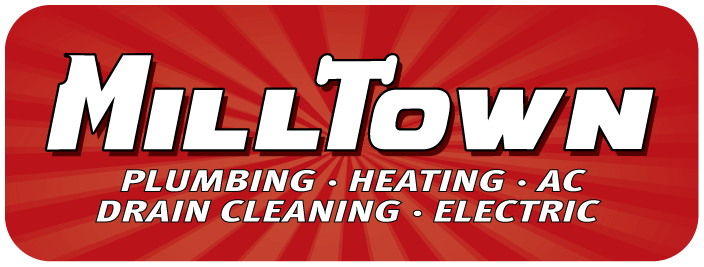What Is the Best Drain Cleaning Method?
- Sewer

Maintaining a clean and functional drain system is crucial for every household or business. Proper drain cleaning not only prevents clogs and blockages but also ensures the efficient flow of wastewater, safeguarding your plumbing system and reducing the need for costly repairs. In this blog, we’ll explore the significance of drain cleaning and the impact of neglecting it. At Milltown Plumbing, Heating, Air Conditioning, Drain Cleaning & Electrical we can provide expert advice on various drain cleaning methods, guiding you toward the best approach to keep your drains in top-notch condition.
The Importance of Drain Cleaning and Maintenance
A well-maintained drain system plays a vital role in preserving the overall health of your plumbing. Regular drain cleaning helps prevent clogs caused by debris, grease, hair, soap residue, and other materials that can accumulate over time. By staying proactive, you can avoid unpleasant odors, backups, and potential water damage, ensuring a smoothly operating plumbing system.
Impacts of Avoiding Drain Cleaning
Neglecting drain cleaning can lead to a plethora of issues, causing headaches and costly repairs down the line. Persistent clogs can cause pipes to burst or crack, leading to leaks and water damage in your home or business. Additionally, standing water in clogged drains can become a breeding ground for harmful bacteria and mold, posing health risks to you and your family.
What Is the Best Drain Cleaning Method: Professional Drain Cleaning
Professional drain cleaning techniques offer effective solutions to keep your drains flowing smoothly, preventing clogs and ensuring a well-maintained plumbing system. When it comes to the best drain cleaning method, the answer lies in professional drain cleaning services. Hiring a skilled and experienced drain-cleaning plumber is the most effective and reliable way to address clogs and prevent future blockages. Here are some of the best draining cleaning methods used by professional plumbers:
- Hydro Jetting: Utilizes high-pressure water to blast away debris and buildup within the pipes, providing a thorough and efficient cleaning.
- Drain Snakes/Augers: Flexible tools that navigate through the plumbing system to dislodge and remove stubborn clogs.
- Video Camera Inspections: Employed to identify the exact location and nature of blockages, enabling targeted and precise cleaning.
Why You Should Avoid DIY Drain Cleaning
While DIY methods may seem cost-effective, they can often do more harm than good. Chemical cleaners may damage your pipes, and improper use of drain snakes or augers could lead to pipe damage or exacerbate the clog. Instead of taking unnecessary risks, it’s best to entrust your drain cleaning needs to a professional.
There are several drain cleaning methods available, each catering to specific situations:
- Chemical Cleaners: These are readily available in stores and can help dissolve minor clogs. However, they can cause harm to your pipes with repeated use and may not be effective for stubborn blockages.
- Plungers: A basic yet effective tool for clearing simple clogs, such as those found in toilets and sinks. However, plungers may not work well for more severe blockages.
- Drain Snakes/Augers: These flexible tools are useful for reaching deeper clogs. While they can be effective, they require a skilled plumber. They also might not be suitable for all types of pipes.
Who Should I Call for Professional Drain Cleaning?
When seeking professional drain cleaning services, look no further than Milltown Plumbing, Heating, Air Conditioning, Drain Cleaning & Electrical. With years of experience and a team of skilled technicians, Milltown Plumbing offers reliable and efficient drain-cleaning solutions. Our experts use modern tools and techniques to identify and remove even the most stubborn clogs, ensuring your drains flow freely once again. Contact us today to discuss your drain cleaning needs and stubborn clogs!
Preserve Your Plumbing System
Maintaining clean drains is a crucial aspect of taking care of your plumbing system’s health and avoiding costly repairs. Understanding drain cleaning’s importance, repercussions, and methods helps safeguard your home or business. Remember, for the best results, always opt for professional drain cleaning services from trusted experts like Milltown Plumbing, Heating, Air Conditioning, Drain Cleaning & Electrical. Keep your drains clean and clog-free to enjoy a hassle-free plumbing system for years to come.
Don’t forget to check out our Google Reviews and see why thousands of customers are calling us to clean their drains!













